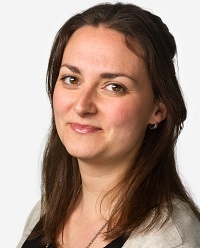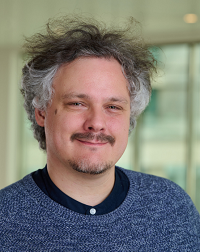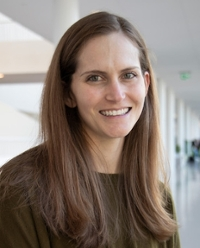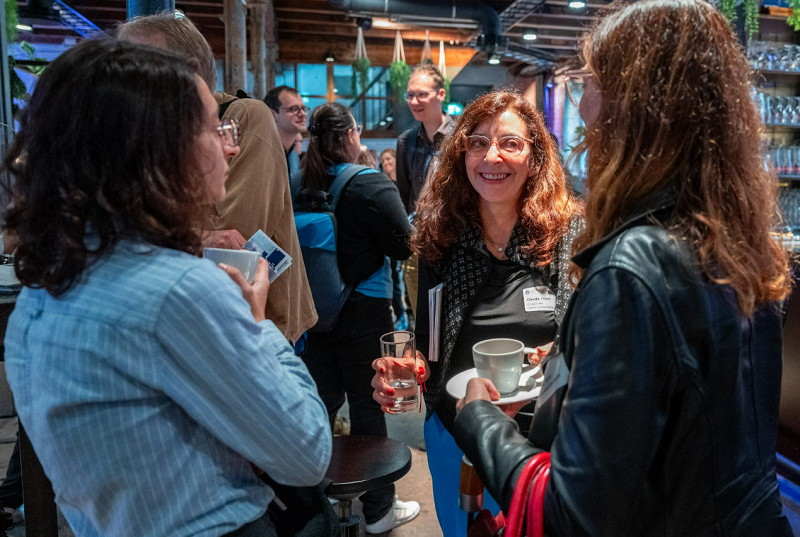
Leiden Research Support Network: invisible forces in science
They are not always in the spotlight but are essential to our scientific research: Leiden research support professionals. And their network is growing and professionalising all the time. Over a hundred such professionals shared knowledge and gained inspiration at the Leiden Research Support Network Conference.

This is the fourth consecutive year of the conference. And that is no coincidence because the Leiden Research Support Network is growing and its members are more actively sharing their knowledge and experience. ‘Over the past few years our network has developed into an active community of practice where Leiden research support professionals work together, share expertise and tackle complex questions from researchers’, said programme manager Dennis Janssen at the opening plenary. ‘The roles of research support professionals are developing all the time and becoming increasingly important – and have received due recognition in our Strategic Plan.’
In the nine conference workshops, the participants tackled topical issues, such as supporting large collaborative projects, changes to the funding landscape and navigating the point where ethics, data management and knowledge security meet. There was also plenty of time to forge new partnerships and share best practices.
‘The roles of research support professionals are developing all the time and becoming increasingly important’
More than support alone
At the start of the day, assistant professor Stefan de Jong began his keynote with an announcement: the prestigious annual Spinoza and Stevin Prizes were approaching. Why was he sharing this? ‘Because this always goes hand in hand with media coverage for the laureates, but something is always missing from all the press releases and news articles. You never read about the grant advisers, for example, who helped these researchers win these grants, the HR advisers who support them in hiring PhD candidates or the business developers who ensure their work with other parties runs smoothly.’ On the screen behind De Jong was the title of his presentation: invisible forces. ‘While I can clearly see a large group of you here’, he said to the over one hundred research support professionals in the room.

De Jong researches how ‘professional staff’ contribute to scientific knowledge production. He deliberately use this term rather than ‘support staff’, for example. It is about much more than support alone, he said. ‘These are university educated staff who are responsible for developing, maintaining and changing the social, digital and physical infrastructures that make teaching, research and knowledge exchange possible.’ Despite this, the scientific literature still makes assumptions about research support professionals at universities. The picture painted deserves more nuance, said De Jong.
Vision for the future
Should researchers and research support professionals meet more often, be it in person or online? Later on in the panel discussion, senior grant adviser Anna Coyajee-van Rietschoten said she always meets researchers at the start of a project. ‘I give a clear and honest explanation of what they can expect. The collaboration itself will follow but at least we have had the chance to get to know each other.’
‘We should all try to show how many people really do contribute to the research at our university’
And that is just one of many good initiatives. ‘At our faculty, we give Research Desk tours so we can explain all the procedures from start to finish’, said associate professor Lotte van Dillen from the Faculty of Social and Behavioural Sciences. ‘Colleagues often quote the saying: “It takes a village to raise a child”. We should all try even more to get this message across and show how many people really do contribute to the research at our university.’
De Jong ended his speech with his vision for ten years from now. ‘Then it will no longer be called a research support conference but a research infrastructure conference. And ideally, the room will be filled with a mix of what we now call academic and professional staff who work together to make such events possible.’
What did participants take away from the conference?

Ellen Stijl-’t Hart
LUMC consortium coordinator
‘My aim today was to connect with and learn from people who do the same work and face the same challenges as me. I definitely achieved that. A workshop that stood out for me was the one on collaboration within large projects and how to reach people you don’t know personally. That produced a lot of interaction and familiar-sounding situations, so it was great fun and useful at the same time. The plenary session was about how we could work to make the collaboration between university staff more equal. That really hit home with me because that is my experience too − that you are not always on an equal footing in the conversation. It would be interesting to put our heads together and figure out how we can change that.’

James Smith
European and International Grants Officer at the Institute of Security and Global Affairs
‘I only recently started at Leiden University, so this is my first time at one of these meetings. I’d heard a lot of enthusiastic things about it through the research support community – and now I understand why. What stood out for me today was the workshop on knowledge security, as this is something that comes up quite a lot at our faculty. I also liked keynote speaker Stefan’s idea of us being able to present ourselves as professional staff, since we do get a bit of slippage of the names of our roles. The idea of us supporting and maintaining an infrastructure was also a really good key point. It’s interesting to think of a research infrastructure not just as something that involves academics, but something that we are also a part of.’

Alessa Gambardella, PhD
Data steward at the Faculty of Science
‘One of the things I appreciated today was that there was time for actual workshops, rather than just presentations. I also found the update of the new research project management tool really useful. In just a short twenty minutes, I was able to learn so much, both from the workshop as well as from my colleagues’ questions. I look forward to learning more as the tool rolls out, and about the related research data management tool that is in development. Today was also a good way to connect with the other staff that work adjacent to the research staff. I don't really like to call us support staff, because I think that sometimes support is something that is seen as an extra, or something that can be done without, or at least that was my experience when I was a researcher not too long ago. Maybe the Leiden Research Collaboration or Team Network would be an option? I am not sure, but can’t help but feel inspired by the discussions and progress on related topics at Utrecht University recently.’
-

Over one hundred research support professionals visited the fourth LRSN Conference -

After the plenary opening, the research support professionals took part in workshops -

-

-

About the Leiden Research Support Network
The Leiden Research Support Network is the essential network for research support professionals within Leiden University. This network allows research support professionals from different domains to enhance their synergy in communities: exchanging expertise and experiences, and working as a team to answer researchers’ sometimes complex questions. The network’s strength lies in teamwork that transcends the boundaries of faculties and institutes.
Photos: Monique Shaw
